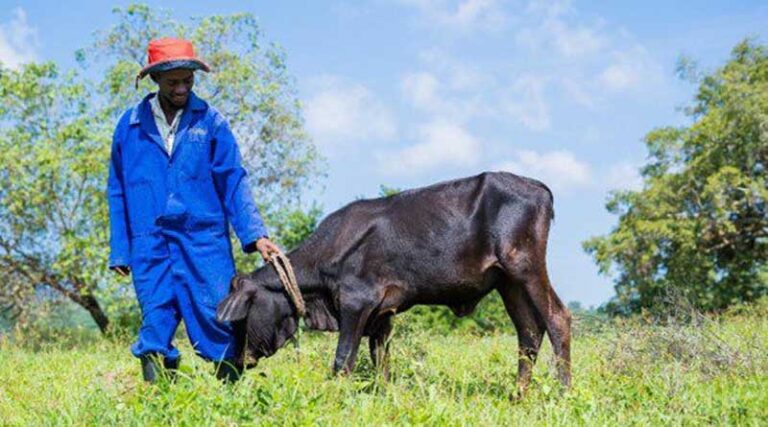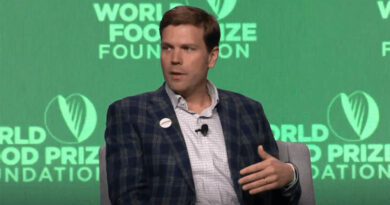
Integrated Surveillance Tops Future One Health Research Priorities
28 October 2025, Africa: Integrated surveillance systems that unite human, livestock, agricultural, and ecosystem experts to support early detection, community engagement, and rapid response tops the five future research priorities on One Health.
An evidence brief and report – which present the findings of a One Health Horizon Scanning exercise carried out by Oxford Systematic Reviews (OXSREV) as part of the Juno Evidence Alliance’s work under CABI’s One Health Hub – also reveal climate change and emerging diseases as a top research priority.
The research priorities, identified after a global consultation that included over 400 stakeholders from academia, government, NGOs, and international organizations, also include governance mechanisms, antimicrobial resistance (AMR), and socio-environmental drivers of disease.
Multi-track roadmap for advancing One Health priorities is recommended
To advance One Health priorities, the project recommends policymakers and decisionmakers follow a multi-track roadmap that includes anchoring investment in shared priorities, promoting inclusive and representative participation, and investing in intergenerational capacity building.
Dr Dannie Romney, project director of CABI’s One Health Hub, said: “The One Health approach offers a unified, cost-effective framework for anticipating, preventing, and responding to issues across human, animal, plant, and ecosystem health.
“Despite growing global support, low- and middle-income countries, particularly in Africa and Asia, require context-specific One Health research to guide effective action. Identifying regional research priorities is essential to ensure that policies and investments are evidence-based and appropriately targeted.”
African respondents prioritize governance and surveillance
The findings of the One Health Horizon Scanning exercise, which involved analysis of regional multilingual surveys, online and in-person workshops, with a specific focus on Africa and Asia, revealed African respondents prioritize governance and surveillance highly – likely reflecting systematic gaps in public health infrastructure.
In contrast, European and North American respondents showed greater interest in predictive modelling and zoonotic risk forecasting.
Younger (under 35) and older respondents (65 and over) emphasized themes of equity, education, and indigenous knowledge integration, whereas other respondents were most aligned with the global consensus and prioritized governance and systems building.
Men leaned toward technical surveillance and AMR control
While there were no differences between genders for top-ranked issues, respondents who identified as female consistently prioritized decolonization, indigenous knowledge, and environmental justice more highly, while those identifying as male leaned toward technical surveillance and AMR control.
Academics emphasized transdisciplinarity, education, and decolonization, while governments focused on implementable tools and programmatic efficiency.
Other recommendations include enabling regional customization – supporting regional platforms that help adapt global strategies to local institutional, environmental, and socio-political contexts, and leveraging regional champions to lead bottom-up policy translation.
It is also recommended that sectoral silos are bridged so that conceptual and justice-orientated research can be translated into operational tools and training for decisionmakers.
There is a need, too, to foster academia–government–civil society collaboration by supporting cross-sectoral working groups and communities of practice.
One Health needs investment in platforms, processes, and partnerships
Dr Gillian Petrokofsky, lead author of the One Health Horizon Scanning report and Founding Partner of OXSREV, said, “The study demonstrated broad consensus on the top research questions in One Health. However, it also revealed significant differences in One Health research priorities across regions, genders, demographics and sectors.
“It concluded that recognizing and incorporating this diversity should be viewed as a source of strength, not a barrier to progress.”
Dr Sini Savilaakso, Evidence Research Lead of the Juno Evidence Alliance, added: “Advancing a genuinely global One Health agenda will require investment in platforms, processes, and partnerships that balance coordinated action with the flexibility to respond to local needs and conditions.”
Creating dialogue around One Health research
The Horizon Scanning project has been carried out with funding from UK International Development. The project’s findings will contribute to a One Health research roadmap, to be published by the One Health Hub later this year.
CABI’s One Health Hub and One Health Knowledge Bank will be holding a webinar with the FAO’s One Health Knowledge Nexus to discuss these findings and their implications for global One Health research. The webinar will take place on 14 November at 13.00 GMT/ 14.00 CET; participants may register at: https://cabi.zoom.us/webinar/register/WN_B098YrZdR-amdCA3y94FvQ
Also Read: Another Myth Busted: John Deere has not “Gutted” its Iowa Factories
📢 If You’re in Agriculture, Make Sure the Right People Hear Your Story.
From product launches to strategic announcements, Global Agriculture offers unmatched visibility across international agri-business markets. Connect with us at pr@global-agriculture.com to explore editorial and advertising opportunities that reach the right audience, worldwide.






